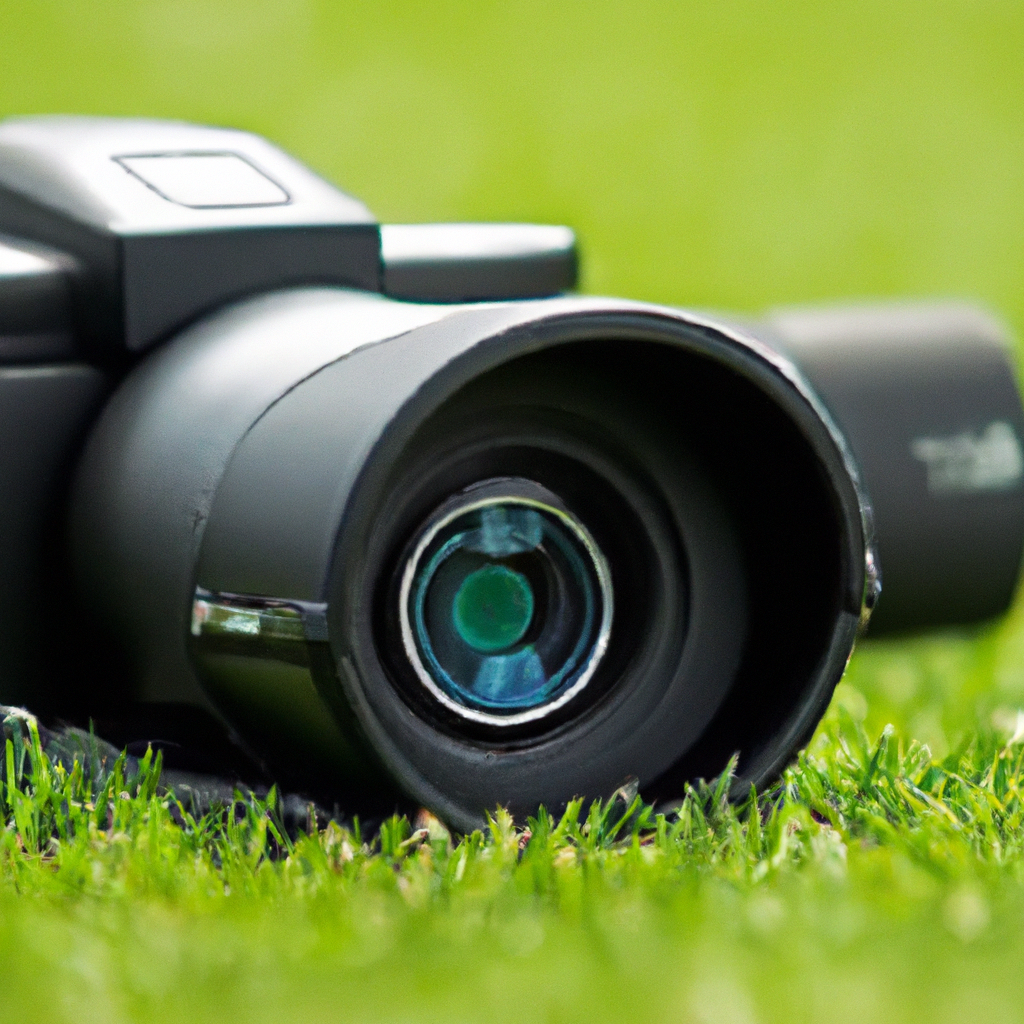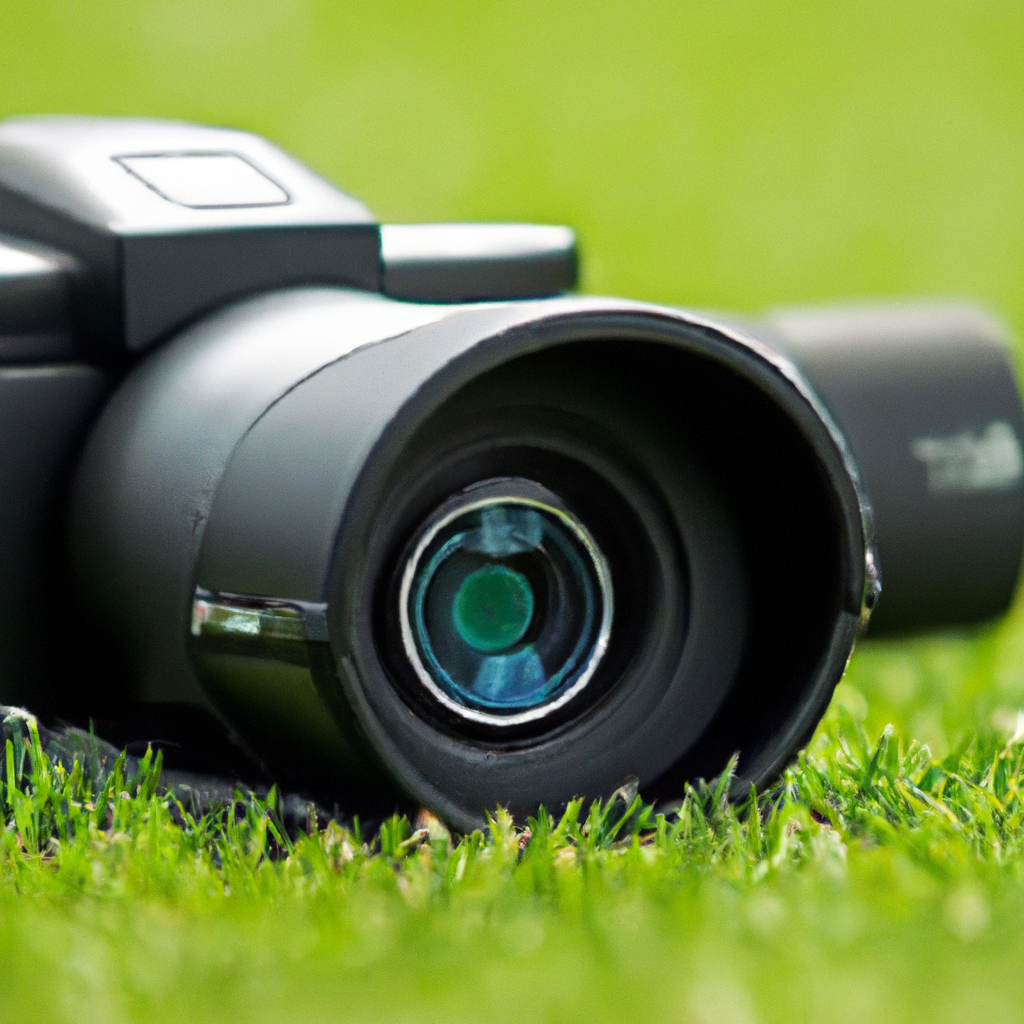We may earn money or products from the companies that may be mentioned in this post.
Are you an avid golfer looking for a new tool to improve your game? Well, look no further than a hunting rangefinder. Yes, you heard that right! In this article, we will explore the pros and cons of using a hunting rangefinder for golf. From its ability to accurately measure distances to its compact and portable design, there are several advantages worth considering. However, there are also some potential drawbacks to using this unconventional device on the golf course. So, grab your clubs and join us as we explore the exciting world of using a hunting rangefinder for golf!

What is a Hunting Rangefinder?
Definition and Functionality
A hunting rangefinder is a device used by hunters to accurately measure the distance between themselves and their target. It is typically a compact and portable device that uses advanced laser technology to determine the distance. The rangefinder emits a laser beam, which bounces off the target and returns to the device. By measuring the time it takes for the beam to travel, the rangefinder calculates the distance with high precision.
Features and Usage
Hunting rangefinders are designed to withstand rugged outdoor conditions and are equipped with features that cater specifically to hunting needs. These features often include camouflage or durable casing, advanced target acquisition technology, and enhanced accuracy in low light conditions. The primary purpose of a hunting rangefinder is to assist hunters in determining the distance to their target, which aids in making accurate shots and improving overall hunting success.
What is a Golf Rangefinder?
Definition and Functionality
A golf rangefinder is a device used by golfers to accurately measure the distance from their position to various points on the golf course. Golf rangefinders primarily utilize laser technology or GPS to determine the distance. By providing golfers with accurate yardage information, rangefinders help them make informed club selections and improve their overall game.
Features and Usage
Golf rangefinders are specifically designed for the unique needs of golfers. These devices often have sleek and lightweight designs, making them easy to carry and handle on the course. Golf rangefinders may provide additional features such as slope compensation, which adjusts the distance measurement based on the elevation changes of the course. Some models also offer detailed course maps and hazard information. The main purpose of a golf rangefinder is to assist golfers in accurately gauging distances and making more precise shots.
Using a Hunting Rangefinder for Golf
Accuracy
When it comes to accuracy, both hunting and golf rangefinders are designed to provide precise distance measurements. However, golf rangefinders are often calibrated specifically for golfing purposes and may offer more refined accuracy within the range relevant to the sport. Hunting rangefinders, on the other hand, prioritize long-range accuracy for shooting purposes, which may not be as crucial for precise distance calculations on a golf course.
Distance Measurement
Both hunting and golf rangefinders excel in distance measurement capabilities. They can accurately measure the distance to specific targets, such as flagsticks or landmarks on the course. However, golf rangefinders may have features like target priority modes, which allow golfers to prioritize specific objects like flags, while ignoring potential obstacles like trees or bunkers. Hunting rangefinders typically do not offer this level of target customization.
Ease of Use
Golf rangefinders are designed with ease of use in mind for golfers of all skill levels. They often have intuitive interfaces and straightforward operations, allowing golfers to quickly and effortlessly measure distances. Hunting rangefinders, while not inherently difficult to use, may have additional features and settings that may be less relevant or unnecessary for golfers, potentially making them slightly less user-friendly.
Targeting Mechanism
The targeting mechanism is an essential aspect of both hunting and golf rangefinders. Golf rangefinders typically have features like pin-seeking mode or flag lock, which help golfers pinpoint the exact location of a flagstick or target. Hunting rangefinders prioritize target acquisition for shooting purposes and may not have specialized focusing modes specifically designed for golf.
Weather Resistance
Both hunting and golf rangefinders are built to withstand various weather conditions, such as rain, snow, or fog. However, golf rangefinders may have additional features like water-resistant or waterproof casings, as golfers often play in wet conditions. Hunting rangefinders, though rugged and durable, may not provide the same level of water resistance as golf-specific rangefinders.

Pros of Using a Hunting Rangefinder for Golf
Multi-Purpose Functionality
One significant advantage of using a hunting rangefinder for golf is its multi-purpose functionality. If you already own a hunting rangefinder, you can utilize it for both hunting and golfing activities, eliminating the need to invest in a separate golf-specific device. This versatility allows you to make the most out of your existing equipment.
Longer Range
Hunting rangefinders are often designed with longer-range capabilities to cater to the needs of hunters. This can be advantageous on a golf course, especially when trying to measure long distances or when playing on larger courses. The extended range of a hunting rangefinder may provide you with more accurate measurement options, particularly if you enjoy playing on courses with vast landscapes.
Better Durability
Hunting rangefinders are built to endure rugged outdoor conditions and are generally more durable than their golf counterparts. They are designed to withstand harsh environments, such as rain, dust, and minor impacts. This durability may give you peace of mind on the golf course, knowing that your rangefinder can handle accidental drops or exposure to the elements.
Cost-Effectiveness
If you already own a hunting rangefinder, using it for golf can be a cost-effective option. Instead of purchasing a separate golf rangefinder, you can save money by utilizing the equipment you already have. This can be particularly beneficial if you are on a budget or want to minimize your overall expenses on golfing gear.
Cons of Using a Hunting Rangefinder for Golf
Limited Golf-Specific Features
While a hunting rangefinder can provide distance measurements on a golf course, it may lack some of the golf-specific features that come with dedicated golf rangefinders. For example, hunting rangefinders may not provide slope compensation, which adjusts distance measurements based on the gradient of the course. Additionally, they may not have specialized focusing features or modes designed specifically for golf targeting.
Lack of Slope Compensation
Slope compensation is a feature commonly found in golf rangefinders. It adjusts the distance measurement to account for uphill or downhill slopes on a golf course. Hunting rangefinders generally do not offer this feature, as it is not necessary for hunting purposes. Without slope compensation, using a hunting rangefinder for golf may not provide accurate yardage adjustments when playing on hilly or undulating courses.
Potentially Illegal in Tournaments
Using a hunting rangefinder for golf may not be allowed in official golf tournaments, as they often require the use of golf-specific rangefinders. Tournament regulations usually dictate that participants must use devices that adhere to certain standards and restrictions. Therefore, if you plan on participating in organized golf tournaments, it is essential to ensure that your rangefinder meets the required criteria.
Difference in Pricing
Comparison of Hunting Rangefinder and Golf Rangefinder Prices
The pricing of rangefinders can vary depending on the brand, features, and overall quality. In general, hunting rangefinders tend to be less expensive than golf rangefinders. This is partly because hunting rangefinders prioritize long-range accuracy, while golf rangefinders offer specialized features and functions tailored to the sport. Golf rangefinders often come with higher price tags due to their dedicated golf capabilities and specific targeting features.
Safety Precautions
Avoid Pointing Towards People or Objects
When using a rangefinder, whether for hunting or golf, it is crucial to follow safety precautions. Always ensure that you do not point the rangefinder towards people or objects unintentionally. The laser beam emitted by the rangefinder can be harmful if directly exposed to eyes or sensitive equipment. Aim the rangefinder only at the intended target to avoid any accidents.
Follow Safety Guidelines
Each rangefinder comes with specific safety guidelines provided by the manufacturer. It is essential to carefully read and follow these guidelines to ensure safe and proper usage. The guidelines often include information about battery usage, cleaning, storage, and any specific precautions related to the model of the rangefinder.
Store Rangefinder Properly
To maintain the longevity and performance of your rangefinder, it is crucial to store it properly when not in use. Most rangefinders come with a protective case or pouch. Be sure to place your rangefinder in its designated case and store it in a cool, dry place. Avoid leaving it exposed to extreme temperatures or direct sunlight, as this can lead to damage or decreased functionality.
Keep Away from Children
Rangefinders should always be handled and stored out of children’s reach. The powerful laser technology used in rangefinders can be hazardous if misused or mishandled. Ensure that your rangefinder is stored securely and kept away from children to prevent accidents or harm.
Tips for Using a Hunting Rangefinder for Golf
Practice with the Rangefinder
Using a hunting rangefinder for golf requires some adjustment, especially if you are accustomed to using a dedicated golf rangefinder. Take some time to familiarize yourself with the functions and controls of the hunting rangefinder before using it on the golf course. Practice measuring distances to various targets to ensure accurate readings and build confidence in your rangefinder’s performance.
Mastering the Targeting Mechanism
Since hunting rangefinders are primarily designed for target acquisition in hunting scenarios, mastering the targeting mechanism for golfing purposes is essential. Experiment with different focusing modes and techniques to improve your ability to lock onto desired targets, such as flagsticks or landmarks on the golf course. With practice, you can enhance your targeting efficiency and overall rangefinder experience.
Understanding How to Adjust for Slopes on the Course
Without the slope compensation feature, it is crucial to understand how to adjust for uphill or downhill slopes on the golf course when using a hunting rangefinder. Familiarize yourself with estimating the degree of slope and make necessary adjustments in club selection or shot strategy based on your judgment. Learning to read the course and adjust for elevation changes will help you make more accurate shots and improve your overall golf performance.
Conclusion
Evaluation of Pros and Cons
Using a hunting rangefinder for golf can be a viable alternative for golfers who already own this type of rangefinder. While it may lack some of the specialized features of dedicated golf rangefinders, it offers multi-purpose functionality, longer range capabilities, better durability, and potential cost savings. However, it is crucial to consider the limited golf-specific features, lack of slope compensation, and potential tournament restrictions when deciding to use a hunting rangefinder for golf.
Personal Preference and Usage
Ultimately, the choice between using a hunting rangefinder or a golf rangefinder for golfing activities depends on personal preference and individual needs. If you primarily play recreationally or do not require extensive golf-specific features, utilizing a hunting rangefinder may serve you well. However, if you prioritize specialized golf functions and frequently participate in tournaments, investing in a dedicated golf rangefinder may be more suitable.
FAQs
Can a hunting rangefinder be used for golf?
Yes, a hunting rangefinder can be used for golf. While it may lack some golf-specific features and functions, it can provide accurate distance measurements on the golf course.
Are there any risks associated with using a hunting rangefinder for golf?
The primary risk associated with using a hunting rangefinder for golf is potentially violating the regulations of official golf tournaments. Additionally, it is crucial to follow safety precautions and avoid pointing the rangefinder towards people or objects unintentionally.
Are hunting rangefinders allowed in golf tournaments?
Golf tournament regulations often require the use of golf-specific rangefinders. Therefore, hunting rangefinders may not be allowed in official golf tournaments. It is essential to check and comply with the rules of each specific tournament you plan to participate in.
